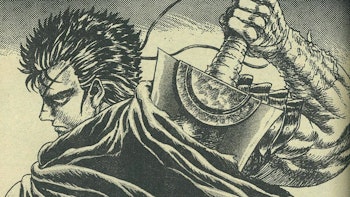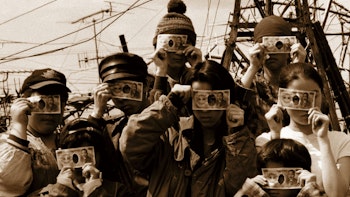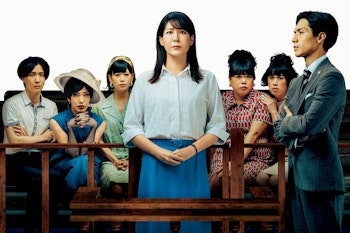
Love is hard, no matter your orientation. Especially if you have a lot of trauma to overcome in order to feel truly able to have a healthy and stable relationship.
Egoist channels a steamy tightrope in a country where such honest queer stories remain a rarity. Kosuke (Ryohei Suzuki) appears to have everything in his high-paying job as a fashion magazine editor, especially since he’s never not seen surrounded by a healthy array of male friends and never struggles. But having lost his mother a few years prior, he’s had problems opening up until Ryuta (Hio Miyazawa) comes along.
He’s a thrust of energy when he enters Kosuke’s life as a personal trainer, leaving him vulnerable enough to open up and attempt to seek something more with the younger man. Only, it turns out that to make ends meet alongside his seemingly-lavish works, he’s forced to moonlight as a male prostitute. Kosuke offers a stipend with just one condition: be his partner, and quit this work.
A film so focused on the challenges of navigating male gay romance in modern Japan, rather than fleeing to the not-unwelcome but unrealistic fantasy of a boys-love universe where the rules of society need not apply, remains rare in Japan. Those that exist do so as fraught and problematic as reality because the secrecy changes the field in a way that will make these relationships in some ways inevitably fraught. To portray that reality means the audience must confront the circumstances that surround this relationship and characters, and it’s this which Egoist is best at exploring without it distracting from the romantic heart of their relationship at the film’s core.
Class is at the core of Egoist, the contrast between the fur-lathered luxury of Kosuke as armor to the toiling to help an ailing mother of Ryuta straining a bond in a way monetary difference always strains a relationship. Still, their love at first appears almost cloyingly-beautiful, montage regularly employed to show the pair opening up, trusting each other and openly showing affection, even if secrets remain. Their relationship is not just implicit or affection merely alluded to here. The film is unafraid to get more steamy in showcasing the extent of their love, in that sense, a bright light in their lives that, on both sides, allude to strife.
There’s a bubbling melodrama that unfurls as the power imbalance and stresses of life, alongside the expectations of the world around them, crescendo to shatter the loving barrier of their relationship. Here, the camera goes from a soft and caring reflection of their love to a rough, handheld affair that’s claustrophobic in how it trains into these characters and forces a reset of the expectations of their partnership.
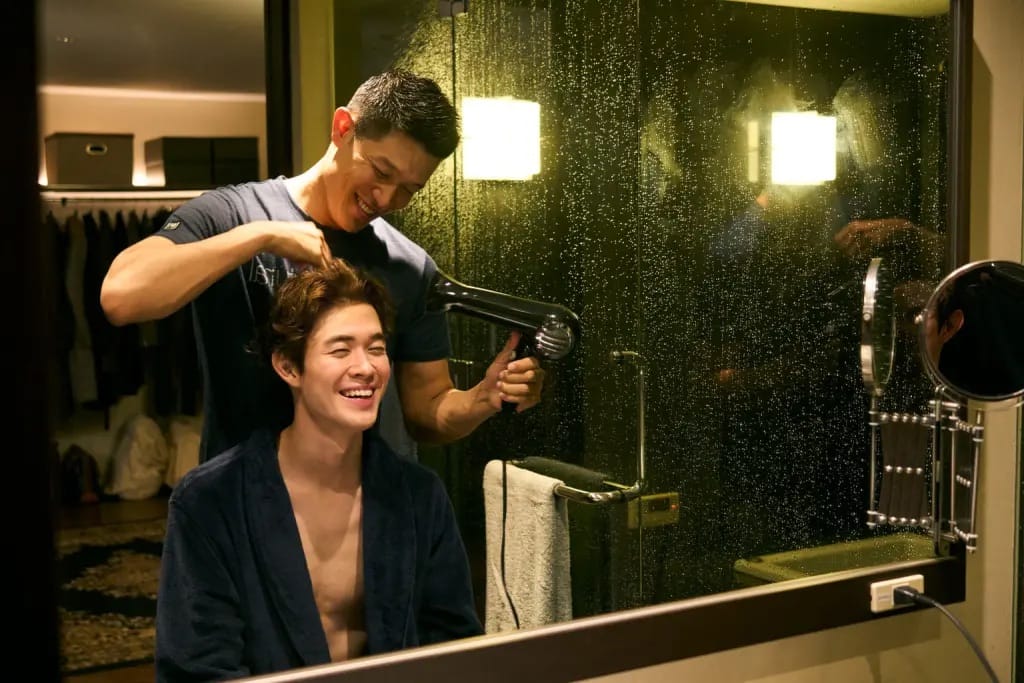
Bubbling underneath is a feeling of grief. Not just within Kosuke for his mother that frequently impounds on their relationship, but for the relationships and lives they can’t live due to the taboo nature of their love in the eyes of the world around them. How the feeling of losing a life you could’ve had, even if it wouldn’t have made you happier, can fundamentally alter your view of the world around you and leave you on edge and harsher towards it, key to allowing the film’s focus on how grief can shape you whether by death or beyond to flourish.
The film undergoes a harsh tonal shift in the second half of the film, one that to spoil would neuter the effect of the handling of these ideas to a first-time viewer. Upon release, the shift was somewhat controversial, a sense that the film felt ill-at-ease with centering solely on the central queer relationship we so rarely see in Japanese film that it needed this shift. While the question of whether it could’ve been rewritten to retain its initial centering of their love to continue for the film’s duration is up for debate, it’s hard to argue against the idea that the shift does ultimately aid the film.
The shift expands the role of the supplementary cast and provides a window into seeing how that same clouding of your vision from grief for the life of others and the life that could have been prevents you seeing things for how they are today. Particularly, the shift allows for Ryuta’s mother - Shizuko Saito, played by Yuko Nakamura - to become a greater part of the story as the things left unspoken by the pair about themselves and those they care for allow them to connect, allow for Shizuko to accept the secret of her son’s homosexuality she in part already knew, and fill the film with a warmth and hope for a brighter future that ties the messiness and questions together well.
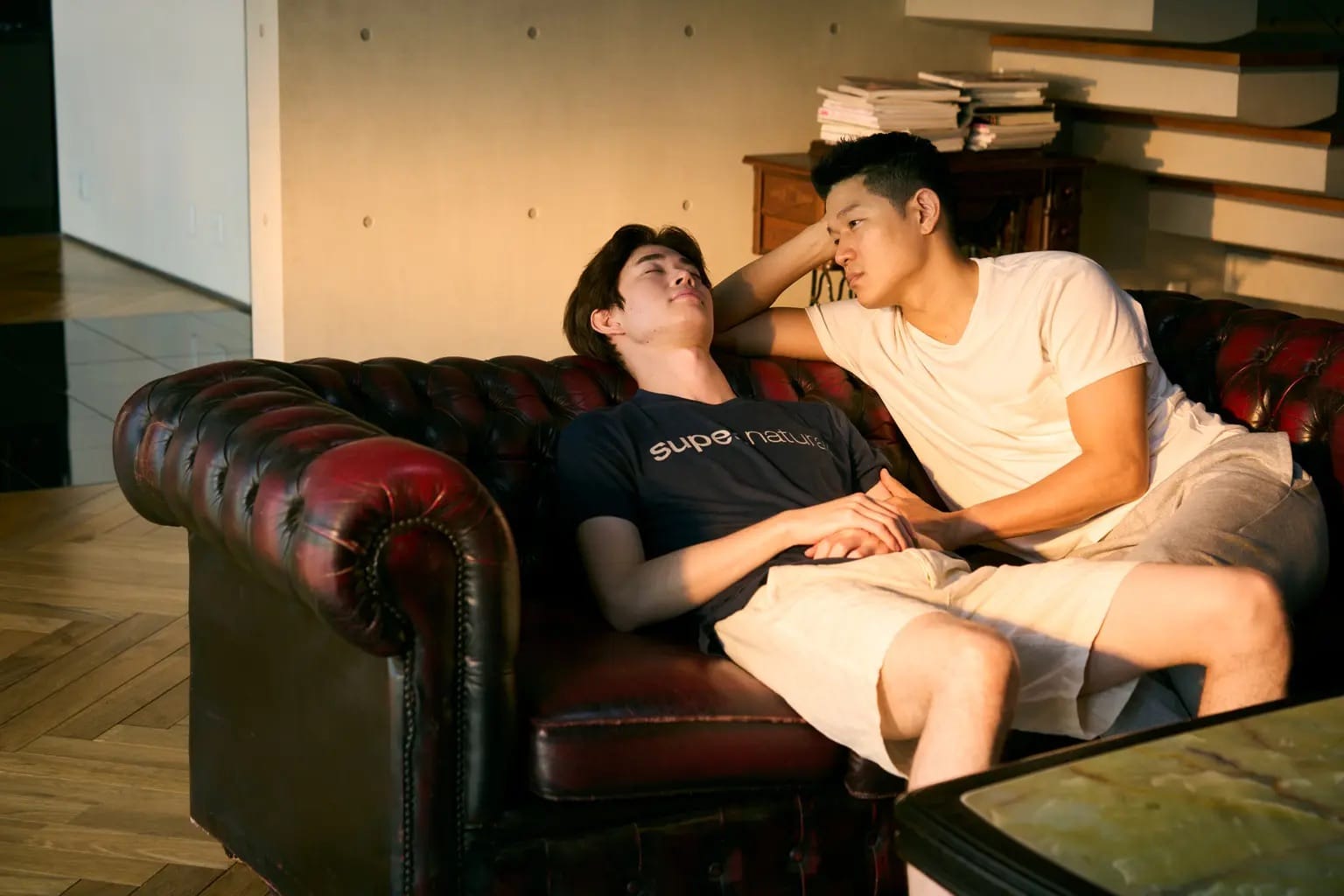
Is this conclusion a little neat in making an imperfect relationship feel complete? Perhaps, but I’m hardly opposed to this when it touches at a nerve that rarely gets explored in a Japanese context.
The film’s title is the key: this is a film flirting with the tightrope between love and ego. The monetary spend of Kosuke on Ryota can be viewed as his way of expressing love, or a way of exerting a degree of control. You can call that control or even mutual love a burden, considering Ryota goes from pursuing things his own way to leave himself at the financial mercy of Kosuke, even if it was due to love. There’s no clear answer to whether this was a fair relationship or one where ego on each side contributed to the compounding of grief, but the desire to grow from that and the expressions of love at the end bring a bow to this that’s messy, but show’s a depth to their love that lingers with the audience even once the credits have rolled.

Japan has a penchant for romances where a happy ending is not always a foregone conclusion, just a desire for stories where love is treated with power, intimacy, respect, and warmth no matter how it ends. Egoist is no different. Elevated by nuanced and full-thrusted performances from both its lead actors, it’s easy to fall helplessly involved in their romance, and get lost in the indeterminable emotions hidden and expressed by this lead duo.
The fact there aren’t many queer films like it, inside or outside of Japan, for how it approaches pleasure and pain through this relationship and its evolution, is deserving of credit. Egoist is a queer romance like few others in contemporary Japanese cinema, and is deserving of your time for that alone. Even if I can’t promise a happy ending.
scrmbl's Classic Film Showcase shines a light on historical Japanese cinema. You can check out the full archive of the column over on Letterboxd.



